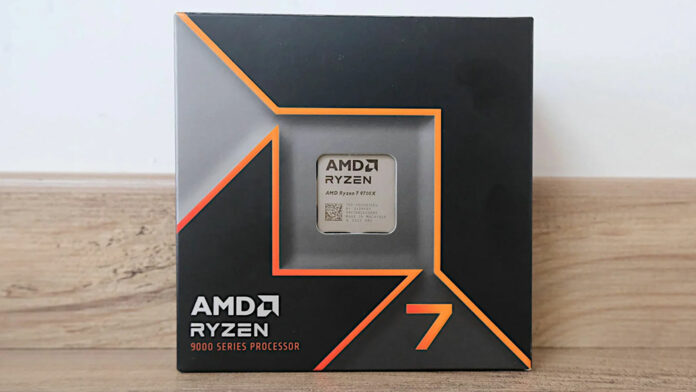If you have a Ryzen 9000, 7000, or 5000 CPU, Windows 11 24H2 will boost your processor’s gaming performance, just as AMD claimed. We’re talking gains upwards of 30% in some games, with the average uplift appearing to be between 10-11%. While this an undeniably welcome boost, it doesn’t remedy the poor value Zen 5 chips had to begin with.
Since launch, Zen 5 processors have struggled to justify their value, with gaming performance proving a particularly sore spot. Even with their architectural advantages, none could usurp Ryzen 7 7800X3D as the best CPU for gamers. AMD said Windows 11 24H2 should benefit Ryzen 9000 chips most, theoretically widening the gap between their predecessors. Unfortunately for the brand, this doesn’t appear to be the case at all.
YouTube channel Hardware Unboxed demonstrates how marginal the gaming performance between Zen 5 and Zen 4 remains in the wake of Windows 11 24H2. Putting Ryzen 7 9700X and Ryzen 7 7700X up against one another, in a huge test suite of 40+ games, the outlet found there was just a 2% difference between the chips. That’s up from a whopping 1% with version 23H2 of the operating system.
Each processor saw a 7-9% uplift in Cyberpunk 2077: Phantom Liberty, matching the 7% I observed testing my 7800X3D with Windows 11 24H2. While we currently lack comparisons between Ryzen 5 and 9 SKUs, we imagine there will be similar improvements up and down the lineups across generations too.
This new version of Windows 11 stands to benefit Intel processors too, with Core i5-14600K enjoying gains similar to Ryzen 7 9700X in Gears 5. As much as AMD brand prediction updates are improving gaming performance on Ryzen CPUs, it’s clear 24H2 contains broader optimisations too. They’re not as far-reaching, with other games seeing no difference on the 14th Gen chip, but undoubtedly present.
It’s important to note that this is still a preview build and final performance is subject to change. Still, it’s highly unlikely that any changes will see Zen 5 charge ahead. This set of circumstances does leave me questioning whether it’ll be worth waiting for Ryzen 9000X3D processors. After all, the price of Ryzen 7 7800X3D continues to tumble.
Will a prospective Ryzen 7 9800X3D be just 2% faster than its predecessor? It’s possible. Hopefully this less than stellar state of affairs is what forced AMD to delay 9000X3D processors to 2025. How much the company can improve what will be a largely locked-in design though is questionable. Either way, the field is wide open for Intel to seize the performance crown via Core Ultra 200 CPUs.
We can’t wait to benchmark every processor again once Windows 11 24H2 receives a general release (thanks, AMD). In the meantime, though, do give our Ryzen 9 9950X & Ryzen 9 9900X review a read for all the data you could possibly want on Zen 5’s best.


